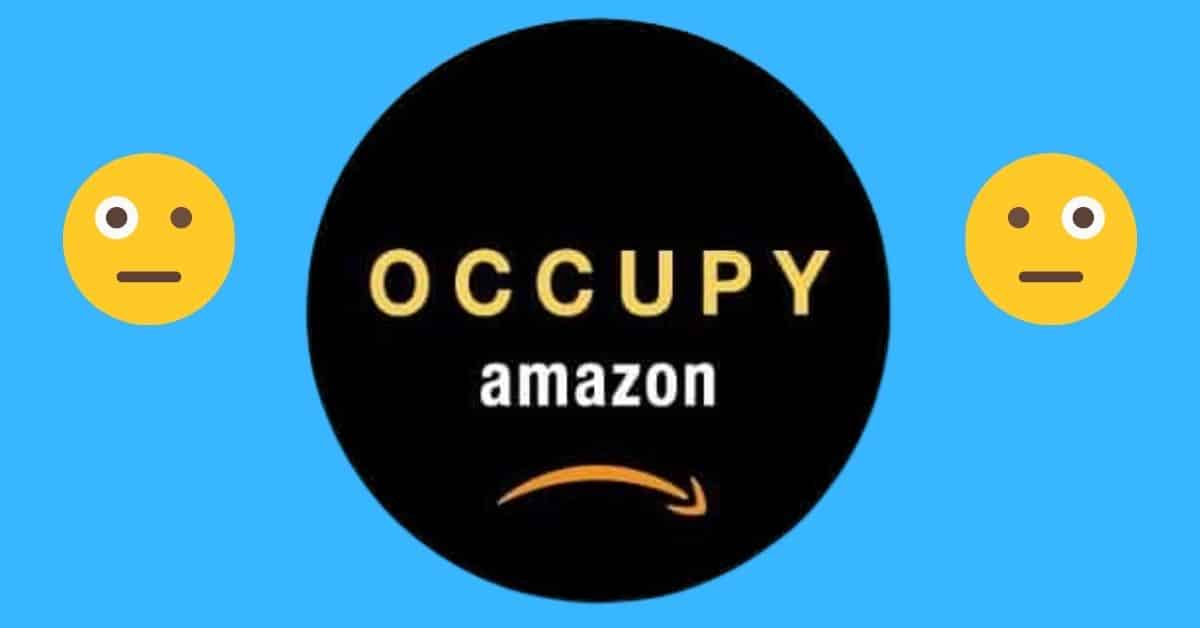The anti-Amazon stories seem to be coming thick and fast at the moment. Salon published an article on Sunday by Alexander Zaitchik called “Amazon’s $1 Million Secret,” which contained the sensational allegation that Amazon… donated $1 million to various literary and non-profit groups.
Beneficiaries include the Brooklyn Book Festival and PEN; journals like The Los Angeles Review of Books, One Story, and Poets & Writers; 826 Seattle (a tutoring program aimed at kids) and Girls Write Now (a mentoring program for girls); as well as various other associations such as Lambda Literary (supports LGBT literature), Words Without Borders (international literature), and Voice of Witness (human rights).
This post is from 11 April 2012. It has not been updated except to clean up broken links, but the comment section remains open, as always.
Wait. Hold on one second. This sounds like a good thing! Even the Salon piece says:
At a time when independent publishing is struggling to survive, in part due to the influence of Amazon, recipients say that these grants offer crucial — if ironic — life support. Sometimes the grants pad out thin margins of survival, and make it possible for worthy programs to maintain their tiny staffs. And there’s no question the grants support legitimately important work: Literature in translation, international poetry, smart criticism, youth literacy efforts.
So far, so good, right? I mean, they used the word “ironic” in there, which makes me think that some bad stuff is coming, but giving all this money to good causes can only be a positive thing, right? Wrong, according to Alexander Zaitchik:
Is the program simply a calculated corporate response to past accusations of stinginess? Is it part of a long-term strategy to divide and conquer the last bastions of Amazon’s critics, while winning over some of the very people Amazon may find useful as it develops its print-on-demand and e-book business?
It depends whom you ask. Of more than a dozen grantees Salon interviewed, some completely disassociated Amazon’s charity from its business practices. Others were more conflicted, but saw nothing to gain by dwelling on the source of the funds or turning their cash-strapped offices into an Ethics 101 seminar. Others saw Amazon’s grant giving as something to be feared: An evolutionary skill developed by a natural and intelligent predator growing ever stronger off the blood of its prey.
Okay. So, some people interviewed didn’t agree with Alexander Zaitchik’s theory that Amazon’s grants are part of some nefarious plan to buy silence as they destroy the publishing business and our literary heritage, but, to make sure the readers don’t focus on that, he quotes plenty of those who have a problem with it. Like this (unnamed) guy:
“The grants are a blatant attempt to buy goodwill from an industry that they’ve ravaged,” said one veteran indie publisher who asked not to be identified because he’s involved in an Amazon-funded project. “They are a rapacious, horrible company from top to bottom. But they have all this excess capital, so $25,000 here and there is nothing to them. And it’s working. People say, ‘Oh, look, they’re funding a translation prize, what could be wrong with that?’ Yet everything about them is still evil.”
In case you skipped over the dubbing of Amazon as rapacious, horrible, and evil, Alexander Zaitchik helpfully follows up in the next sentence by calling them “the devil.”
The basis for these opinions of Amazon is outlined briefly, covering the same tired ground of allegations of monopoly and Scott Turow’s wrongheaded attack (which I picked apart here).
However, there is some new information, which made additional headlines last night when PaidContent picked up the story, disclosing further details. According to Alexander Zaitchik, for the first time, two of the “Big Six” publishers have refused to sign their annual contract with Amazon:
The main sticking point is exorbitant increases in “co-op promotional fees” for e-books that the publishers see as an illegal gouge by another name. One person familiar with the details of the proposed 2012 contracts that Amazon has submitted to major New York publishers described them as “stupifyingly draconian.” In some cases, he said, Amazon has raised promotional fees by 30 times their 2011 cost.
I’m sure this news will provide Amazon-haters with plenty of ammunition, but a basic analysis shows why that would be extremely misguided.
In case you aren’t aware, the “co-op promotional fees” they are referring to are the online version of paying for placement in physical bookstores (such as face out instead of spine out, or prime position on front tables, etc.).
On Amazon, this translates into those ads you see in various parts of the Kindle Store, books being featured on the homepage or various other pages, as well as inclusion in the targeted email blasts to Amazon customers or in lucrative programs such as the Kindle Daily Deal.
This exposure on the Amazon site is a huge driver of sales. The Kindle Daily Deal alone regularly places the chosen book into the Top 10 in the overall Kindle listings. (Indeed, they appear to have the power to do that with any book, so there is a real scramble to be included.) While publishers agree to cut the price of the featured book, that price is usually returned to normal the following day, making the publisher a staggering amount of money on the way back down the charts.
The Salon article, the PaidContent piece, and a subsequent story in the Bookseller are all short on details, but it’s safe to assume that Amazon wants to raise the price for these various marketing programs, causing uproar among publishers.
This raises a number of questions. First of all, isn’t Amazon fully within their rights to charge what they like for advertising on their site and marketing to its customers? Do publishers think they can name their price and Amazon must accept? What planet are they on?
It makes perfect sense that Amazon would raise their prices. In the last twelve months, the e-book market has grown dramatically. I think it’s safe to assume that the number of visitors to the Kindle Store has also risen by a huge amount. If a newspaper doubled its circulation, wouldn’t it be prudent of them to raise their advertising rates?
Amazon has greatly expanded their own publishing program in the last twelve months. I think it’s also safe to assume that they are keeping an increased amount of this co-op for their own titles – which makes sense, and which they are fully within their rights to do (and, indeed, if I was published by Amazon, I would mad if they didn’t).
This is a fake scandal. There are less co-op spots available now. The amount of traffic to the Kindle Store has increased dramatically. It’s perfectly logical that the price would go up. Anyone who claims otherwise is simply not thinking.
The anti-Amazon PR campaign really jumped the shark with that Salon piece – a ham-fisted attempt to spin Amazon’s support of a variety of literary organizations into some nefarious attempt to buy silence.
I shake my head at all these Amazon stories – all of a sudden, Big Publishing cares about small presses and independent bookstores! – and the cynic in me wonders about their provenance. Is all of this an attempt to distract attention away from the investigation of (alleged) price-fixing and collusion between several large publishers and Apple?
If so, they failed. Because the Department of Justice filed its antitrust lawsuit this morning.

